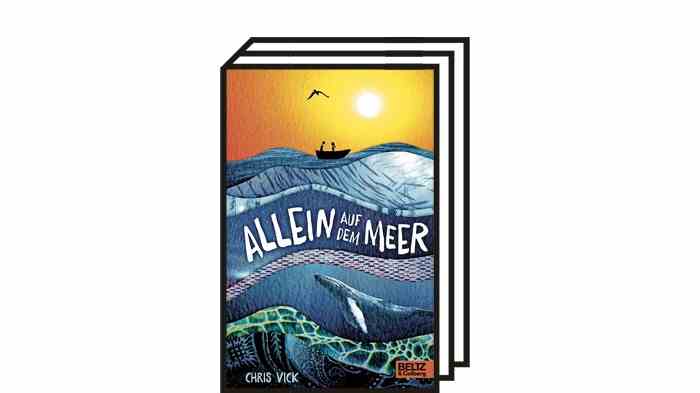Shipwreck, odyssey and robinsonade, diary and fairytale, dream and madness, sensuality and adventure – all this is offered in the novel “Alone on the Sea” by Chris Vick. It is the story of the well-protected English Bill, who is suddenly separated from the other crew members on a trip with the yacht Pandora from the Canary Islands by a sudden storm: The Pandora sinks, the others can save themselves in a rubber boat island, Bill succeeds It’s surviving in a dinghy, alone at sea. He still has supplies, but everything is running out, including the water reserves. He discovers the completely exhausted girl Aya on a buoy swimming by. Bill can pull her over to him, and a desperate struggle to survive together against thirst and hunger, the burning sun and the merciless sea begins. They learn from each other, Bill from Aya courage, faith and inescapable hope, Aya from Bill recognizing nature observation. They make condensed water to drink, catch a turtle to eat, and make bait from its innards to catch fish. At first the understanding is sluggish, but then gradually a kind of mutual habit develops that creates trust. Nevertheless, Aya remains shy and suspicious almost to the end, especially when they end up on an island with a ruined lighthouse. There they meet Stephan, who turns out to be an evil lurking boy. Aya is descended from Berber nomads and she doesn’t want to wait on the island for rescue sometime. So the two sail off again until all supplies are used up, there is no water and sharks are playing around the Boor, the end is near. . .
Chris Vick tells short and dense, never pleasant or even sensitive. That he knows and loves the sea can be felt in every description, from deadly storms to dead calm. With his first-person narrator Bill, he is able to convincingly intonate the various pitches: first the action narrator sound, then the soliloquy or the almost poetic-sounding diary tone. This creates a pull of tension, first of all caused by the aimless journey on the ocean, then the struggle of the two young people with external dangers and internal demons. It is obvious that this shipwreck with a somehow happy ending also means a school of growing up and life. But nowhere are there pedagogical fingers or patriarchal contemplation. (from 13 years)

